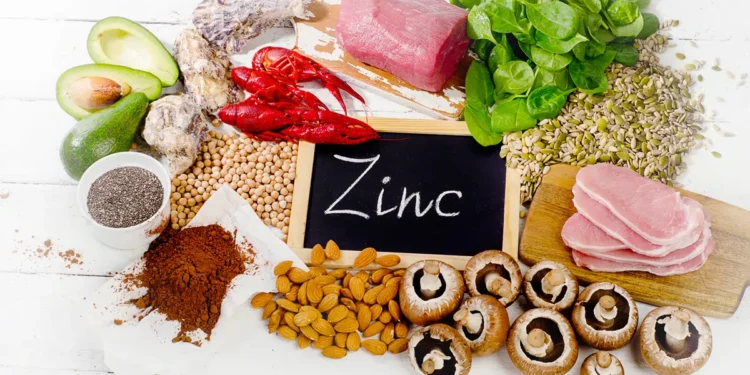Zinc is an important mineral that our bodies require to function properly.
It is involved in a variety of cellular processes, including metabolism, immunological function, protein synthesis, wound healing, DNA synthesis, and cell division.
Here’s a simple explanation of why zinc is so crucial for our health.
What is Zinc?
Zinc is a trace mineral, meaning our bodies need it in small amounts. Despite its small required quantity, zinc plays a crucial role in our overall health.
It’s found in every cell of the body and is second only to iron in its concentration in the body.
Functions of Zinc
- Immune System Support: Zinc is essential for a healthy immune system. It promotes the growth and activation of T-lymphocytes (T-cells), which are essential for immunological response. A zinc shortage can cause a reduced immune response, making the body more vulnerable to infections and illnesses.
- Enzyme Reactions: More than 300 enzymes in the body contain zinc. These enzymes are involved in a variety of biochemical activities, including food digestion, nervous system function, and metabolism. For example, zinc aids enzymes in the breakdown of carbs, proteins, and fats, allowing them to be used for energy and cell repair.
- DNA and Protein Synthesis: Zinc plays a significant role in the synthesis of DNA, the genetic material of cells, and in protein production. This makes it essential for growth and development during pregnancy, childhood, and adolescence.
- Wound Healing: Zinc is essential for wound healing and tissue restoration. It promotes cell growth and division, which are required for the development of new tissue. This is why zinc is commonly used in lotions and ointments to heal wounds and skin irritation.
- Sense of Taste and Smell: Zinc is necessary for maintaining a normal sense of taste and smell. Zinc deficiency can impair taste and smell, reducing appetite and overall meal enjoyment.
Sources of Zinc
Zinc can be found in a variety of foods. Some excellent sources include:
- Meat: Beef, pork, and lamb are rich in zinc.
- Seafood: Shellfish, especially oysters, are very high in zinc.
- Dairy Products: Milk, cheese, and yogurt provide good amounts of zinc.
- Nuts and Seeds: Pumpkin seeds, sesame seeds, and cashews are good plant-based sources.
- Legumes: Chickpeas, lentils, and beans contain zinc, although it is less bioavailable compared to animal sources.
- Whole Grains: Whole grains like quinoa and brown rice also contribute to zinc intake.
Daily Zinc Requirements
The amount of zinc you need depends on your age and sex. Here are the recommended daily allowances (RDAs) for zinc:
- Infants (0-6 months): 2 mg
- Infants (7-12 months): 3 mg
- Children (1-3 years): 3 mg
- Children (4-8 years): 5 mg
- Children (9-13 years): 8 mg
- Males (14 years and older): 11 mg
- Females (14-18 years): 9 mg
- Females (19 years and older): 8 mg
- Pregnant women: 11-12 mg
- Breastfeeding women: 12-13 mg
Signs of Zinc Deficiency
A deficiency in zinc can lead to various health issues, including:
- Weak immune function
- Hair loss
- Diarrhea
- Delayed wound healing
- Loss of appetite
- Impaired growth and development in children
RELATED: Why Vitamin E is Needed in the Body
If you suspect a zinc deficiency, it’s important to consult a healthcare professional for proper diagnosis and treatment.
Zinc is a crucial mineral that supports numerous bodily functions, from immune response and enzyme activity to wound healing and DNA synthesis.
Ensuring you get enough zinc through a balanced diet is essential for maintaining overall health.
Include a variety of zinc-rich foods in your meals to meet your daily requirements and support your body’s needs.












